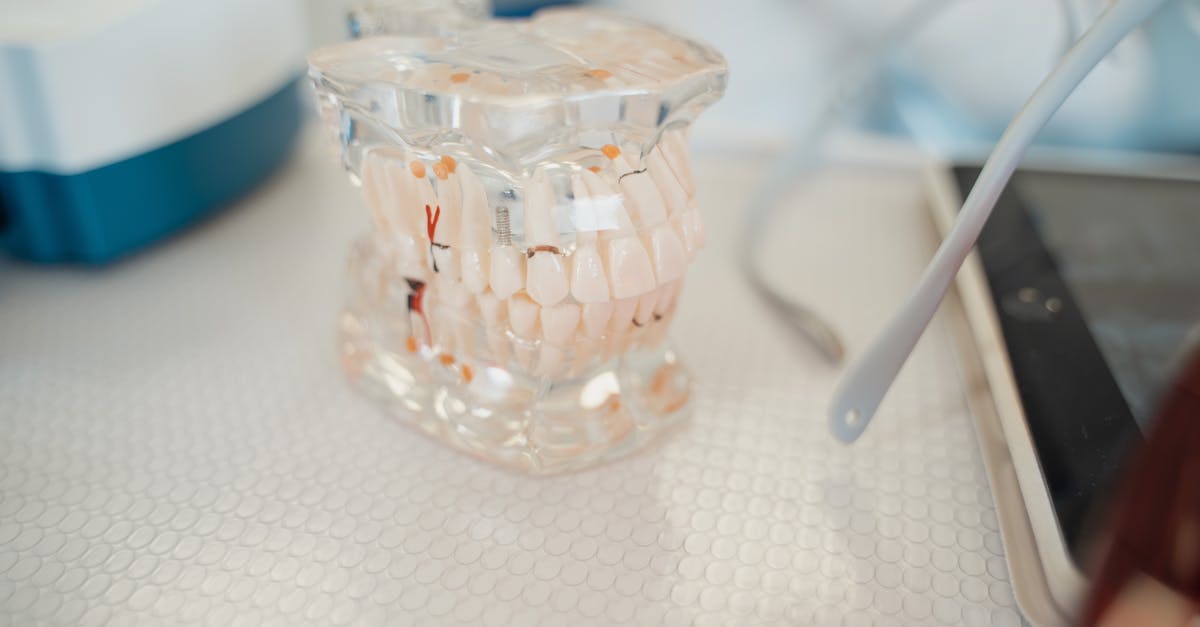Best Foods to Eat After Dental Implant Surgery in Brisbane

Table Of Contents
Preparing Your Meals
Post-surgery meal preparation requires a focus on softness and nutrition. Soft foods aid in healing while reducing the risk of discomfort. Consider incorporating options like pureed fruits, smoothies, and easily mashable vegetables. Simple recipes, such as creamy soups or mashed potatoes, can be both satisfying and gentle on the healing gums.
Planning meals in advance can ease the stress of recovery. Having a selection of soft foods on hand makes it easier to maintain a balanced diet. Making use of freeze-friendly items like blended soups can ensure you have nutritious options available when you may not feel up to cooking. Keeping hydration in mind is also essential; light broths and water-rich foods can keep you well-hydrated and nourished during recovery.
Quick and Easy Recipe Ideas
Soft foods are ideal for consumption after dental implant surgery. Mashed potatoes, creamy soups, and smoothies provide essential nutrients while being gentle on healing gums. Avocado is another excellent choice, rich in healthy fats and vitamins, which can be easily spread on soft bread or blended into a nutritious dip.
Blending fruits like bananas, berries, and yoghurt can create delicious smoothies packed with protein and antioxidants. For added variety, consider oatmeal or porridge, which offer warmth and comfort while being easy to chew. Even simple dishes like scrambled eggs can contribute valuable protein without putting excessive strain on your mouth.
Timing of Your Meals
Timing your meals after dental implant surgery plays a crucial role in ensuring a smooth recovery process. It is essential to give your body adequate time to heal while also providing it with necessary nutrients. Eating smaller, more frequent meals can help maintain energy levels without putting too much strain on the surgical site. Incorporating softer foods during the initial days helps minimise discomfort and reduces the risk of disturbing the implants.
Listening to your body is key in determining when to eat. It is generally recommended to wait a few hours following the procedure before consuming anything. Subsequently, focus on nourishing your body with well-balanced meals that include proteins, vitamins, and minerals that aid healing. Maintaining hydration is also vital during this period, so be sure to drink plenty of water throughout the day.
When to Eat for Optimal Recovery
Following dental implant surgery, timing your meals can significantly influence the healing process. Consuming soft foods shortly after the procedure can help reduce discomfort and promote a smoother recovery. It’s advisable to start with easy-to-eat options within the first 24 hours, focusing on nutrition while ensuring you avoid hard or crunchy items that may impede healing or irritate the surgical area.
As the days progress, you can gradually incorporate a wider variety of foods while still being mindful of texture. Eating small, frequent meals may aid in maintaining energy levels without putting stress on your healing mouth. Staying hydrated is crucial during this time, as healthy hydration supports overall healing and recovery. Remembering to follow any specific recommendations from your dental professional will also help tailor your eating schedule for optimal results.
Consulting with Your Dentist
Professional guidance is essential for a smooth recovery after dental implant surgery. Your dentist can provide tailored advice based on your unique needs and the specifics of your procedure. They may recommend particular foods and eating practices that suit your healing process. Understanding personal restrictions or preferences can help in formulating a suitable eating plan.
Regular consultations also enable your dentist to monitor your progress and address any concerns you might have. This ongoing relationship ensures that you receive timely advice on adjusting your diet as healing progresses. Adhering to your dentist's recommendations can significantly contribute to the success of your dental implant and overall recovery.
Importance of Professional Guidance
Following dental implant surgery, it is crucial to seek guidance from your dentist regarding your nutrition and meal planning. Professional advice will ensure that you understand which foods will support your healing process and which ones to avoid. Your dentist can provide tailored recommendations based on your specific needs and recovery goals, helping to minimise discomfort and avoid potential complications.
Regular consultations with your dental professional also offer the opportunity to monitor your healing progress and adjust your dietary recommendations accordingly. Each individual's recovery can differ significantly. By understanding your unique circumstances through expert advice, you can make informed food choices that contribute positively to your overall health and wellbeing during recovery.
FAQS
What are the best foods to eat immediately after dental implant surgery?
After dental implant surgery, it's recommended to consume soft foods such as yogurt, applesauce, mashed potatoes, and smoothies to avoid irritating the surgical site.
How long should I wait before eating solid foods after my dental implant procedure?
It's generally advised to wait at least 48 hours before introducing solid foods into your diet, but you should consult your dentist for personalised advice based on your specific situation.
Can I drink alcohol after dental implant surgery?
It's best to avoid alcohol for at least 48 to 72 hours post-surgery, as it can interfere with healing and the effectiveness of pain medications.
Are there any foods I should avoid after dental implant surgery?
Yes, it's advisable to avoid hard, crunchy, or sticky foods, as well as hot beverages, which can irritate the surgical area and delay healing.
How can I ensure I’m getting enough nutrients during my recovery?
Focus on a balanced diet rich in vitamins and minerals. Incorporate smoothies, soups, and pureed vegetables, and consider consulting with a nutritionist if you have concerns about your diet during recovery.
Related Links
Foods to Avoid After Receiving Dental ImplantsPortion Control and Eating Techniques Post-Implant
Smoothies and Nutritional Shakes for Post-Implant Healing
How to Adjust Your Eating Habits After Dental Implants
Maintaining a Balanced Diet After Dental Implant Surgery
The Role of Vitamins and Minerals in Healing After Implants